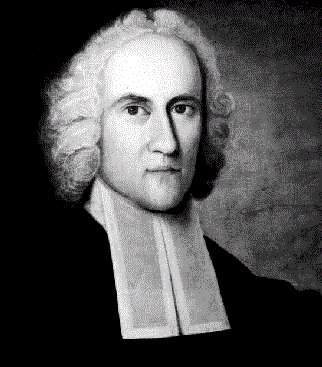 On Sunday, I preached from Romans 5:1-5. In this chapter, Paul looks beyond being made right with God to explain the blessings of a right standing with Him. Below is the outline of Sunday's sermon.
On Sunday, I preached from Romans 5:1-5. In this chapter, Paul looks beyond being made right with God to explain the blessings of a right standing with Him. Below is the outline of Sunday's sermon.THE BENEFITS OF BEING RIGHT WITH GOD
I. Believers have peace with God
Therefore, since we have been justified by faith, we have peace with God through our Lord Jesus Christ. v 1
Paul is saying that those who have seen their need of Christ and have trusted in Him for salvation are no longer enemies of God, but are at peace with Him. I think that Christians often fail to appreciate this benefit because they do not realize what has been prevented by trusting in Christ for salvation. Prior to being saved, believers were enemies of God (Romans 8:7; James 4:4). Those who remain in this condition until death face God’s eternal wrath.
As believers, we must praise God for what we have been saved from and for the fact that we are now presently and eternally in right standing with Him. This fact should strengthin our faith in Christ and our service for Him.
II. Believers have access to God
Through him we have also obtained access by faith into this grace in which we stand. v 2
Paul is saying that God is made reachable to anyone who is in Christ. Before Jesus’ death, the Jews were kept from God’s presence by a veil that hung in the Temple. History tells us that the Gentiles (all non-Jewish people) were also separated from God's presense by a wall outside the temple with a warning on it saying that any non-Jewish person who went beyond it would be killed.
Jesus’ work on the cross ended this separation. As a result, the veil was torn and the walls of division were broken down (Lk. 23:44-45; Eph. 2:14). Today, no matter if you are a Jew or a Gentile, if you are trusting in Christ for your salvation you have access to God. You can hear from Him by reading His word and can speak to Him through prayer.
It is also important to know that this access is unending. The phrase “in which we stand” carries the idea of permanence. The reason this access is lasting is because God is keeping believers in right standing with Himself by His grace.
III. Believers have the hope of glory
We rejoice in hope of the glory of God. More than that, we rejoice in our sufferings, knowing that suffering produces endurance, and endurance produces character, and character produces hope, and hope does not put us to shame. vv 2-5
"Rejoicing in the glory of God" introduces a major reversal of fortune for the readers of Romans. In Romans 1, Paul speaks of those who scorn the glory of God and in chapter 3 he addresses those who have fallen short of God's glory. Now those who have scorned and have fallen short of God's glory through repentance and faith in Christ are promised a share in His glory.
This benefit is a bit different from the previous two because it has not yet been experienced in its fullness. It refers to a time when the work being done in believers will be completed. There will come a time for believers when sin will be removed, and pain and heartache will be no longer because Christians will be made like Christ.
More great news about this benefit is that it isn’t something that might be but what will be. The word “hope” expresses an emotion of desire, but also that of confidence. John MacArthur says that a believer’s hope in the glory of God is a “divinely-secured hope” (Commentary on Romans 5).
Another wonderful thing about this benefit is that although it has not yet been fully experienced, this hope enables Christians to endure trials in this life, not matter how difficult, without losing the lasting joy that comes in a relationship with God. Paul also affirms that these trials are not difficulties one has to simply "grin and bear," but are experiences God uses to grow Christians in godliness. That is why Paul tells his readers to “rejoice (in) suffering.” That word “rejoice” is the same word used when he says “Rejoice in the hope of the glory of God.” Paul's point is that in the same way one rejoices in the future salvation, they should also rejoice in suffering.

































